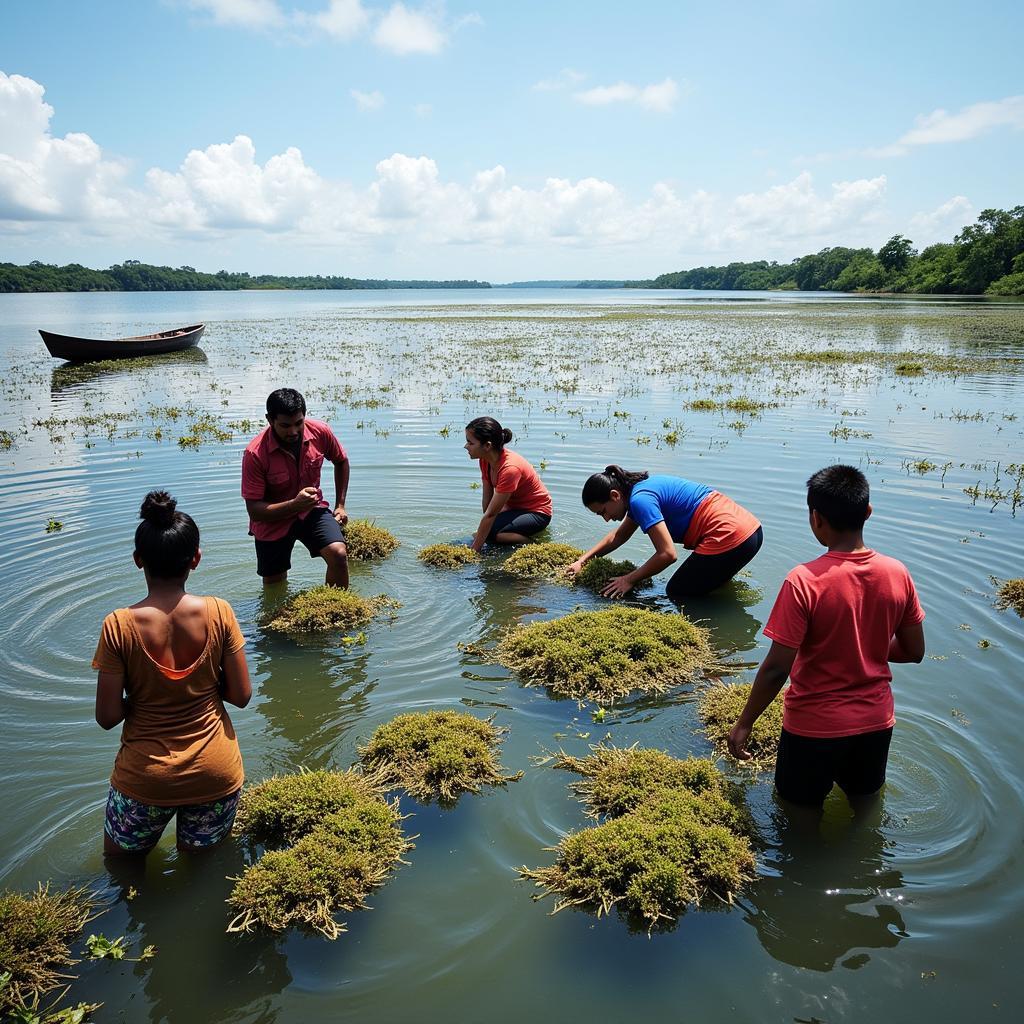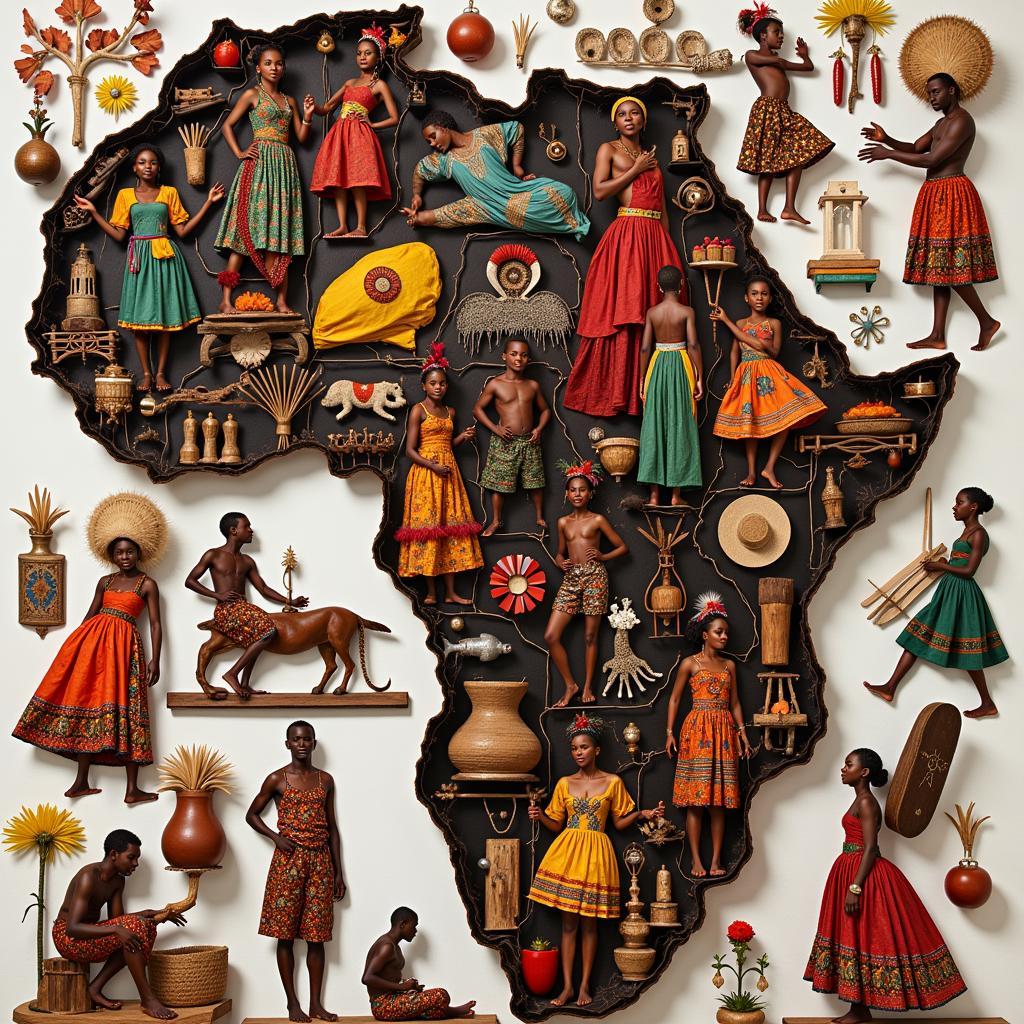Exploring Africa’s Coastal Land: A Journey of Discovery
Africa’s coastal land offers a captivating blend of natural beauty, rich history, and diverse cultures. From the bustling ports of West Africa to the serene beaches of the East, this vibrant region offers a unique experience for travelers and researchers alike.
The Allure of African Coastal Regions
The diverse ecosystems found along Africa’s extensive coastlines are truly remarkable. These areas are crucial for biodiversity, supporting a vast array of marine life and terrestrial species. The interplay between the ocean and land creates unique habitats, from mangrove forests to coral reefs, that play a vital role in the ecological balance of the region. For example, the coasts of Tanzania are renowned for their pristine beaches and vibrant coral reefs, while the West African coast boasts bustling ports and rich mangrove ecosystems. african food is also heavily influenced by the coastal regions, with fresh seafood playing a prominent role in local cuisines.
The Cultural Tapestry of the Coast
Centuries of trade and cultural exchange have shaped the identities of the communities inhabiting Africa’s coastal land. The influence of Arab, European, and Asian traders is evident in the architecture, languages, and traditions of these coastal communities. This fusion of cultures has created a unique blend of traditions, reflected in the music, art, and storytelling of these regions. The coastal regions are also often home to vibrant markets, offering a glimpse into the daily life and commercial activities of these communities.
Navigating the Challenges of Coastal Life
Coastal communities in Africa face numerous challenges, including rising sea levels, coastal erosion, and overfishing. These issues pose a threat to both the environment and the livelihoods of those who depend on the ocean for sustenance and income. Addressing these challenges requires sustainable practices and collaborative efforts to protect the fragile ecosystems and ensure the well-being of coastal communities.
What are the major environmental threats to African coastal land?
Rising sea levels, pollution, and unsustainable fishing practices are among the most significant environmental threats. These factors not only damage the delicate ecosystems but also impact the livelihoods of local populations.
 Sustainable Practices in African Coastal Communities
Sustainable Practices in African Coastal Communities
Economic Opportunities and Coastal Development
Africa’s coastal land presents significant economic opportunities, particularly in sectors such as tourism, fisheries, and maritime transport. Sustainable development in these areas is crucial to ensure that economic growth does not come at the expense of the environment and the well-being of local communities. Investing in sustainable tourism, responsible fishing practices, and efficient port infrastructure can create jobs and boost economic growth while preserving the natural beauty and cultural heritage of the coastal regions.
How can tourism contribute to sustainable development in coastal areas?
Tourism can contribute to sustainable development by creating economic opportunities for local communities, promoting cultural exchange, and supporting conservation efforts. However, it’s essential to manage tourism responsibly to minimize its environmental impact and ensure that the benefits are shared equitably.
Preserving the Heritage of Africa’s Coastline
The preservation of Africa’s coastal heritage is essential for future generations. Protecting the unique ecosystems, cultural traditions, and historical sites along the coast is vital for maintaining the ecological balance and ensuring that these valuable resources are not lost. african creole language often originates in coastal regions due to the mix of cultures and trading interactions. This highlights the linguistic diversity and richness of these areas.
Conclusion
Africa’s coastal land is a treasure trove of natural wonders, cultural diversity, and economic potential. By addressing the challenges and embracing sustainable development practices, we can ensure that this vibrant region continues to thrive for generations to come. Exploring and understanding the unique aspects of Africa’s coastal regions is crucial for appreciating the interconnectedness of nature, culture, and human well-being. Protecting Africa’s coastal land requires a collective effort to ensure its sustainable future. african american words share some connections with the linguistic history of the African coast, demonstrating the enduring influence of African cultures across the globe.
FAQ
- What are the main economic activities in African coastal regions? Fishing, tourism, and maritime transport are among the primary economic activities.
- How does climate change affect African coastal communities? Rising sea levels and extreme weather events pose significant threats to coastal communities.
- What are some examples of unique coastal ecosystems in Africa? Mangrove forests, coral reefs, and coastal wetlands are examples of unique coastal ecosystems.
- What are the challenges faced by coastal communities in accessing clean water? Limited infrastructure and saltwater intrusion can make access to clean water difficult.
- What are some successful conservation initiatives in African coastal regions? Community-based conservation projects and marine protected areas have shown positive results.
- What is the importance of preserving cultural heritage along the African coast? Preserving cultural heritage helps maintain cultural identity and supports sustainable tourism.
- How can individuals contribute to the protection of African Coastal Land? Supporting sustainable tourism, reducing plastic consumption, and raising awareness are ways to contribute.
Common Scenarios and Questions:
-
Scenario: A tourist planning a trip to the African coast.
- Question: What are the best eco-tourism destinations along the African coast?
-
Scenario: A researcher studying the impact of climate change on coastal erosion.
- Question: What data is available on coastal erosion rates in specific African regions?
Further Exploration:
For more information on related topics, you can explore our articles on african american language history and african king in india.
Contact Us
For any assistance, please contact us at Phone: +255768904061, Email: kaka.mag@gmail.com, or visit us at Mbarali DC Mawindi, Kangaga, Tanzania. Our customer service team is available 24/7.

